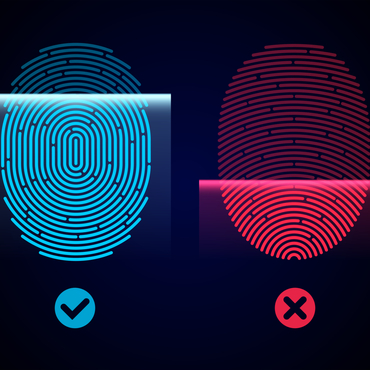Border reps see promise in biometrics
Biometric identification technologies offer a path to compromise over the Trump administration's politically thorny border wall project, said one House Democrat.

Biometric identification technologies could be a key tool not only for bolstering immigration security, but also to negotiate the stormy political landscape that surrounds a planned border wall.
"We're looking for ways to make the border work more efficiently, not shut it down," said Rep. Scott Peters (D-Calif.) in remarks at the Connect ID conference in Washington.
Peters, who sits on the House Science, Space and Technology Committee's technology subcommittee, said that biometric identification technology "is more cost-effective than a border wall."
Peters told FCW that some House Republicans want to discuss technology and the border wall, but the political environment prevents it. "I hope things will settle out politically by then."
The border wall project proposed by the Trump administration, according to Peters, is potentially a barrier to legitimate trade between the U.S. and Mexico. However, biometric security technology that can weed out "bad cargo" of humans, drugs and weapons can aid in trade processes, he said.
Biometric scanners at ports of entries that cost $10,000 per gate make more sense that spending billions on a wall, said Peters.
The leader of the House Homeland Security Committee, Rep. Michael McCaul (R-Texas) also sees biometric technology as a key to border security, as well as counter terrorism efforts.
Biometric technologies, he said in remarks at the same conference, are "key" to expanding visa entry-exit security programs and blocking terrorists from moving through the southern border and into the U.S. Foreign fighters returning from a failing terrorist caliphate in the Middle East could get Mexican drug cartels to smuggle them into the U.S., he said.
DHS programs that rely on biometric information, such as the Biometric Identification Transnational Migration Alert Program Project, said McCaul, have proven effective at tracking suspect individuals before they reach actual U.S. borders.
"McCaul is open to [biometric technology]," said Peters, whose presentation followed McCaul's. "He understands it."
That understanding, said Peters, could lead to a more productive discussion down the road on how the border wall proposed by Trump might evolve into a more technology-oriented effort. Peters said that discussion could take place after some of the political heat cools.
"This time next year we could talk about smart ways to use technology and work the problems in a more constructive way," he said.
Peters told FCW that some House Republicans want to discuss technology and the border wall, but the political environment prevents it. "I hope things will settle out politically by then."





